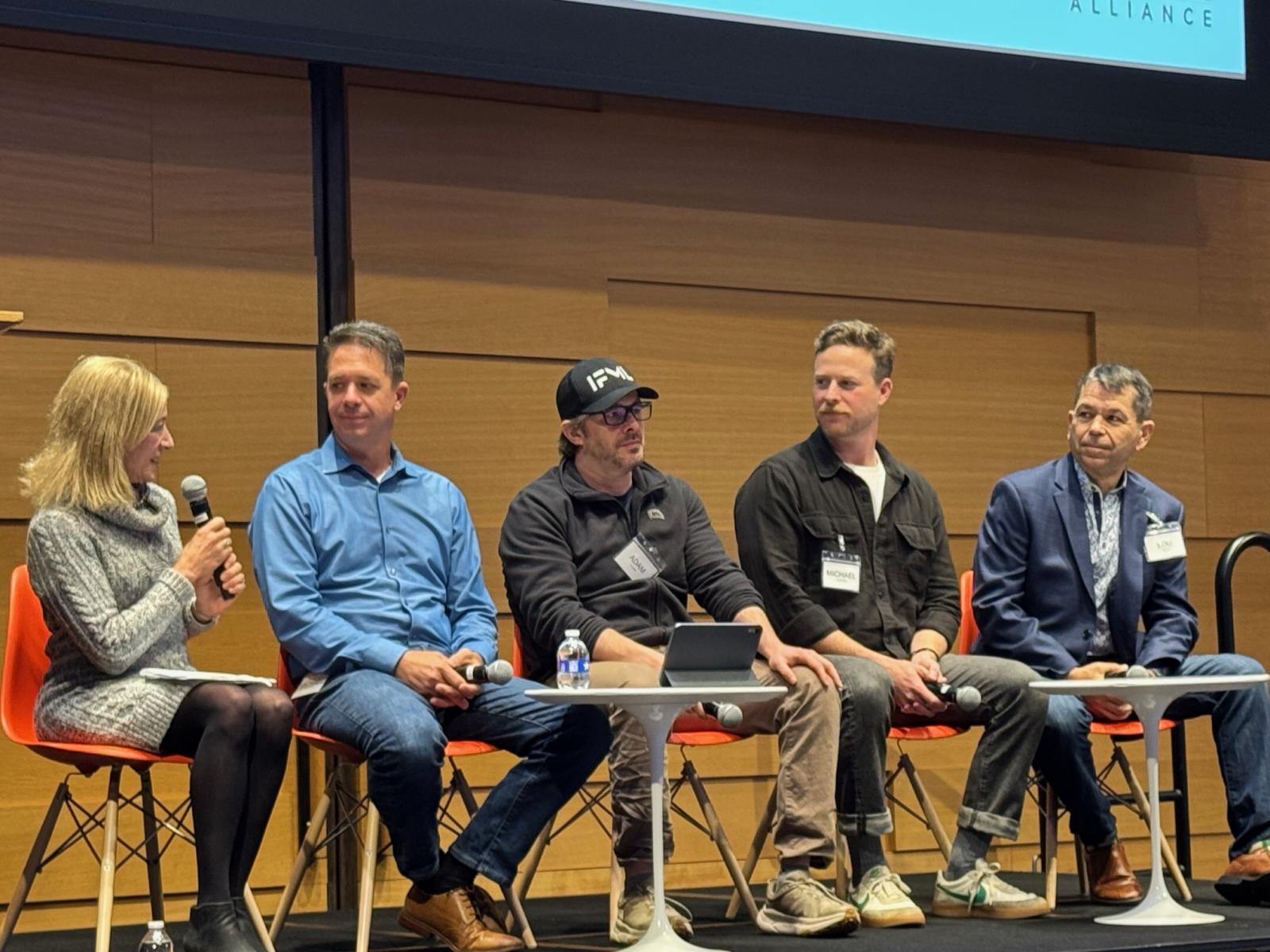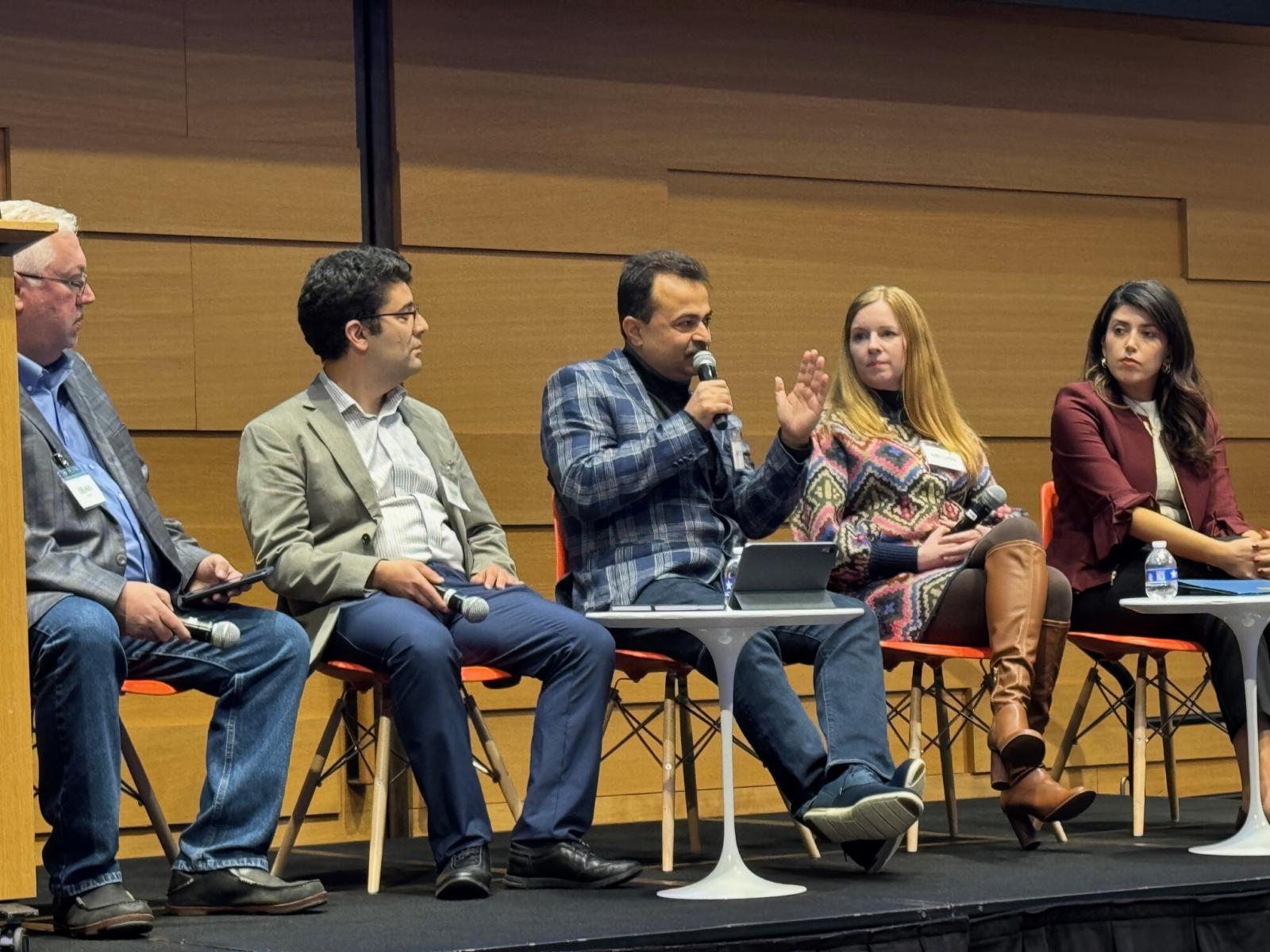Good Systems Helps Shape a Broad New Effort to Guide AI’s Growth in Austin

In a city bursting with tech talent and big ideas, a group founded less than a year and a half ago — the Austin AI Alliance — is carving out a unique space, one that embraces the power of AI while fostering collaboration across sectors and keeping humans — “natural intelligence,” if you will — at the center of innovation. And Good Systems, UT's ethical AI research initiative, has been part of it from the beginning.
Launched in late 2023, the Alliance is a nonprofit consortium of more than 120 members — from startups and tech giants to nonprofits, public agencies and university groups like UT’s Good Systems and Machine Learning Lab — who are working together to shape the future of AI in Austin. Ethical and responsible AI is just one part of the Alliance’s broader mission, which also includes education, policy, workforce development, and cross-sector collaboration to advance AI development and use. From reskilling workers to helping local governments draft smart AI guidelines, the group is hoping to build a more connected, community-driven AI ecosystem in Central Texas.
“For me, I believe in co-design, I believe in collaboration and coordination,” said Sherri Greenberg, former chair of Good Systems and now an Alliance board member. “Good Systems is all about fair and ethical AI, and that’s core to the work I’ve done for decades. The Alliance is a natural continuation of that.”
Bringing a Mission Statement to Life
Executive Director Sean Bauld said the Alliance was designed to bring together a wide range of perspectives — and then turn conversation into action. “They’re just words in our mission statement,” Bauld said, “but we worked really hard on those words, and now we’re aspiring to bring them to life — and Good Systems is a tremendous partner in that.”
“They’re just words in our mission statement, but we worked really hard on those words, and now we’re aspiring to bring them to life — and Good Systems is a tremendous partner in that.”
— Sean Bauld, Austin AI Alliance executive director
That mission has gained momentum quickly, thanks in part to a board intentionally built to reflect the city’s academic, public and tech sectors. “We’re a young organization — just a year old — but we’ve already built real traction,” Bauld said. “We were very intentional about building a cross-section of people: universities, startups, corporate leaders. These are people who care deeply about making AI work for Austin.”
Bauld, who joined the board before stepping into the executive role, said the Alliance was designed to be both a convener and a catalyst. The group hosts regular events and panel discussions ranging from broad perspectives about the current state of AI in Austin to one that explored the benefits and risks of a fast-growing AI technique called synthetic data. Members shared strategies for increasing transparency and avoiding bias in these emerging tools. “We try to take a step beyond ethics and into practice,” Bauld said. “How do we help companies think about inclusion? How do we support professionals whose jobs are shifting? AI’s not going back in the bottle, so how do we make sure it benefits everyone?”

A ‘Focus on Doing’
That spirit of practical collaboration is also driving two major initiatives. This summer, the Alliance will launch a course, in partnership with UT Austin and other institutions, that provides hands-on training and knowledge-sharing across disciplines. And in 2026, the Alliance hopes to release its first “State of AI in Austin” report, a survey-driven snapshot of how AI is being developed and governed across the region.
Policy is another key area of focus for Greenberg, who has been a leader in tech policy since her years as a Texas state representative, in the 1990s. She is working with Austin Mayor Pro Tem Vanessa Fuentes and other city officials to explore how AI is used in public operations and procurement — and how policy can keep up. “Fairness in development and deployment of AI — avoiding algorithmic discrimination, for example — is crucial,” she said. “With generative AI, you’re vacuuming up everything on the internet. If that includes biased or false information, it ends up embedded in the algorithms.”
“Fairness in development and deployment of AI — avoiding algorithmic discrimination, for example — is crucial."
— Sherri Greenberg, Austin AI Alliance board member
“There’s no national legislation right now,” Greenberg added, “but there’s a lot happening at the state and local level. We’re working on ways to create policies — even if they’re not formal regulations — that help ensure AI is used responsibly.”
As a native Austinite with graduate degrees from two UT programs, Bauld sees the city as uniquely positioned to lead this work. “Austin is full of noise,” he said. “Everyone wants to talk. But at some point, you have to tune that out and focus on doing. I’m excited about this Alliance because we’re trying to do something.”
And as AI, Austin, and the Alliance continue to evolve, Good Systems will be there, helping ensure those systems stay, well, good.

